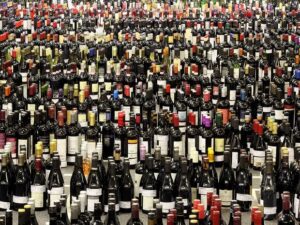
Wealthy connoisseurs and collectors of prestigious wines have freed up a few days in early April for a unique sale of thousands of collectible bottles organized by the auction house “Lombray-Tecam” in the chic surroundings of the Ritz Hotel in Paris.
The total value of all lots is tentatively estimated at 6 million euros. All the bottles exhibited at the auction come from the same collection of a major collector and enthusiastic about the history of French winemaking man.
For more than 50 years this enthusiast, now deceased, whose name the auctioneers do not announce, bought up and preserved tens of thousands of bottles. His heirs decided to scatter this collection at auction. In the “Ritz” April 3 7 will go under the hammer about 30 thousand bottles.
Those who have had the opportunity to get acquainted with the collection, they say that this is the very material history of the best millezimy, the milestones of the winemaking of post-war France. The collector bought his wines following recommendations from the most renowned, internationally recognized experts in the wine industry.
“The auction house informed me of a certain significant cellar. But it never occurred to me to be in front of such a treasure. It is a kind of Grail, the best initiation into wine experts,” admires Claude Maratier, a specialist who has been invited to advise a number of famous wine auctions. This time he was asked to authenticate each of the bottles.
According to connoisseurs, the selection is worthy of a museum. Among the tens of thousands of bottles are 2,000 magnums (one-and-a-half-liter jars), hundreds of cases of Bordeaux grands crus classés (collected from the best vineyards). As well as batches of bottles of the legendary Petrus, Le Pin, Haut-Brion, Clinet, Mouton-Rothschild and a whole range of other wines of the southwest of France, coveted by any lover.
The collector, of course, did not forget about Burgundy. Numerous cases of the best Burgundian wines – grands crus and premiers crus – from the estates of Romanée-Conti, Dujac, Georges Roumier, Armand Rousseau and others, whose names alone say a lot to true connoisseurs, were put up for auction.
“To describe it in a few words, very simply: all the best is here. Bidders will see only the famous labels and only the best vintage years, such as many wines of the mythical, especially for the Rhone Valley, 1978. Seeing it all was an exciting sight,” comments Claude Maratier.
“At the same time,” emphasizes the expert, “all these wines are in impeccable state of preservation, as if they were new, fresh off the bottling line. I’ve never seen anything like it. The labels are intact, the capsules on the necks look great – all of which should appeal to discerning buyers. This is a cellar of treasures carefully collected over the years.”
The starting prices of the lots are known. For example, a set of six “magnums” Petrus 1982 will be traded from 40-50 thousand euros. A set of bottles Romanée-Conti 1976 year offered for 50-60 thousand euros.
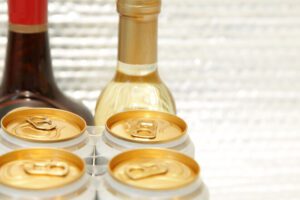
People’s deputies of Ukraine propose to modernize and synchronize the legislation in the Ukrainian wine industry in accordance with international standards, in particular to allow bottling wine in metal cans of food aluminum and kegs of aluminum and stainless steel.
The corresponding bill number 9030 “On Amendments to Certain Legislative Acts of Ukraine on the development of wine production and simplification of economic activity of small wineries” was registered in Parliament on February 17.
Among the authors of the document, in particular, the head of the parliamentary committee on finance, tax and customs policy Daniel Getmantsev, the head of the Verkhovna Rada Committee on Agrarian and Land Policy Alexander Haydu, head of the parliamentary committee on economic development Dmitry Natalukha and head of the parliamentary faction “Servant of the People” David Arahamia.
“The current legislation has norms for bottling wine products only in glass containers. Such norms indicate outdated national standards. In such economically developed countries of the world as USA, Great Britain and France it is allowed to pour wine in metal cans from food aluminum, and also kegs from aluminum and stainless steel. Therefore, taking into account current international practice, it is proposed to allow bottling wine in such packaging”, – clarify the authors of the draft law in the explanatory note to the document.
It is also proposed to cancel the need to obtain a license for the production of alcoholic beverages for small Ukrainian wine producers. Instead of licensing, it is proposed to establish a register of small producers of wine products, inclusion in which would be the basis for a business entity to acquire the status of a small producer of wine products.
The draft law No. 9030 proposes to eliminate a number of onerous existing requirements to material and technical base of small producers of wine products, as they buy raw materials of Ukrainian origin (grapes, fruits, berries, honey) for their activities which facilitates the development of agro-processing in the country.
In addition, it is assumed to simplify the reporting procedure for wine producers, from the current monthly to the annual, which will reduce the bureaucratic burden on them. At the same time, the responsibility of small producers of wine products will remain in the form of a fine for failure to submit or late submission of a report or submission of a report with inaccurate information about the volume of production and/or circulation (including import and export) of alcoholic beverages.
The authors of the draft law emphasize that the document is designed to bring national legislation in line with international practices and current trends in the wine industry, involves the removal of unjustified administrative barriers to the activities of producers of wine, fruit and/or honey drinks and allows for the creation of favorable conditions for the development of small production of wine products in Ukraine.
According to the explanatory note to the bill, by the time of its development in Ukraine there are only 26 small winemaking productions, while in 2013 their number reached a hundred, and in 2018 – 52. Thus, the wine industry in Ukraine is in decline, although Ukrainian producers at the international level demonstrate the high quality of their product and receive recognition and rewards.
“For example, in Italy there are 48 thousand small production of wine products, in France about 27 thousand, in Spain – almost 14 thousand in Georgia – more than 1 thousand. Even in countries with a less favorable climate for viticulture (or climatic conditions similar to Ukraine), their number is higher than in Ukraine. Thus, in Slovakia there are more than 28 thousand small wineries, in Germany – about 10 thousand, in Czech Republic – about 1,2 thousand, in Canada – 900, in Poland – 400, in the Netherlands – over 180 (and this number is constantly growing), “- say the authors of the bill.
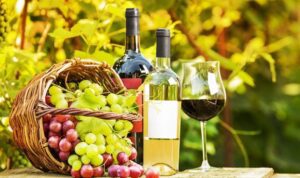
Ukraine has resumed its membership in the International Organization of Vine and Wine (OIV), the decision was officially proclaimed at the International Organization of Vine and Wine (OIV) General Assembly in Ensenada, Baja California, Mexico on November 4, 2022.
Ukraine was represented in the organization for over 10 years, from 1997 to 2008, but lost its membership. According to experts, the reason for this was both objective and subjective factors. For a long time the representatives of the industry have been trying to regain their membership and all these years they have been working on it.
About how the membership was restored, what work is carried out today and what is useful for Ukraine such cooperation we asked those who were directly involved in restoration of membership of Ukraine in the most authoritative international organization of wine industry.
The role of IOVW in the world of winemaking and viticulture
The International Organisation of Vine and Wine (IGOW) is an inter-governmental organisation, created in accordance with the Agreement of April 3rd 2001.
It is an heir to the intergovernmental organization of the International Bureau of Vine and Wine (BIVB), set up according to an agreement of eight countries (France, Spain, Tunisia, Portugal, Hungary, Luxembourg, Greece and Italy) signed in Paris on November 29th 1924.
The organization provides recommendations to the wine-growing and wine-making industries, which are adopted by the European Community, thus emphasizing the influence of the IOWAV on the regulation and trade processes (EU countries produce about 70% of the world’s wine).
The organization’s main objectives are:
– Health benefits and quality of wine;
– protection of interests of the wine industry and creation of favorable market conditions;
– harmonization of standards and compliance of analysis methods;
– protection of geographical indications;
– guarantee of purity and origin of products;
– fight against fraud and unfair competition.
How did the reinstatement of Ukraine’s membership come about?
The Cabinet of Ministers of Ukraine ratified the legal document on September 30 to begin the process of reinstatement and legally confirm Ukraine’s admission to the organization.
The official representative from Ukraine was Vladimir Pechko, Chairman of the public union UKRSADVINPROM.
The renewed membership took effect on October 30.
Expert Opinion
Viticulture and Winemaking Institute named after V. Tairov believes that the restoration of the membership in the IGOV (Auth.-OIV comment) will also give a new impetus for the development of scientific cooperation, creation of new innovative developments, which the industry has always needed and still needs.
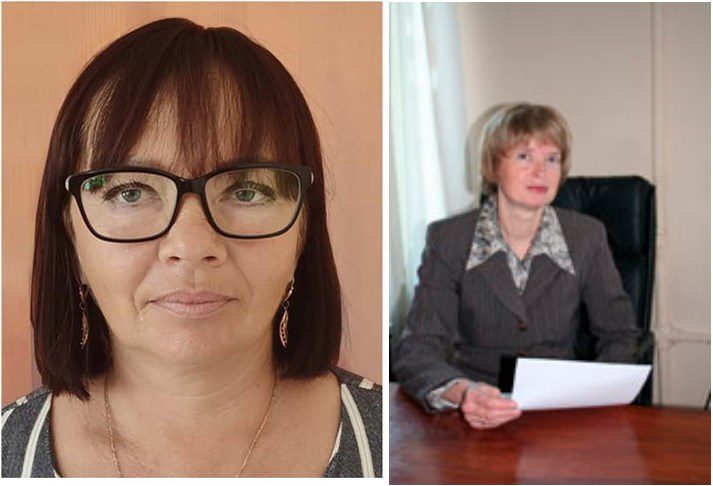
Irina Kovaleva, doctor of agricultural sciences, laureate of the State Prize of Ukraine in Science and Technology, director of the R&D center “IVIV named after Taras Shevchenko”. V.E. Tairov” and Nina Muliukina, Ph.D., corresponding member of the National Academy of Sciences of Ukraine, laureate of the State Prize of Ukraine in Science and Technology, Honored Scientist of Ukraine, Deputy Director for Research:
“The history of relations between Ukraine and the OIV is not a long one, but over these years Ukraine has steadily stepped towards world recognition as a wine-making country primarily through involvement in this well-known organization.
The first stage of Ukraine’s membership in OIV lasted from 1997 to 2008. Unfortunately, the loss of membership was not due to some insurmountable circumstances. Rather it can be called a mistake, an oversight of both the industry management and, to some extent, shortsightedness and indifference of the industry representatives.
However, fortunately, Ukraine had the right to ask for its re-admission to the OIV, as it is among the countries that signed an agreement on the restoration of the organization in 2001.
The initiators of the restoration of membership in the OIV were “UKRSADVINPROM”, headed by Chairman, Pechko Vladimir, supported this process in every way by the Ministry of Agrarian Policy of Ukraine, in the first place by the Winegrowing and Winemaking Department of Agrarian Development and the Department of International Cooperation and Integration, the press service of the Ministry, which worked on this problem for over a year. Representatives of the international community of winegrowers and winemakers also helped.
In fact, the renewed membership came into force on October 30, 2022 and on November 4, 2022 at the OIV General Assembly in Mexico City it was officially proclaimed the restoration of the membership of Ukraine, which became the 49th country-member of the OIV.
Realizing the necessity of this step, we have been emphasizing the need to renew our membership at all levels for more than 10 years. These were official letters to the Ministry of Agrarian Policy, numerous appeals to producers, NGOs and government agencies, decisions of symposiums at conferences, both national and international, and conferences were both practical, with the participation of producers, and purely scientific. In other words, we were constantly reminding those whose political will was needed to take this step.
Joining the OIV member states allows our country not only to become a part of a significant international organization. This is a step towards deepening integration in the field of viticulture and winemaking, its further development and promotion of the Ukrainian wine brand. This is a challenge to the ideology of the aggressor country, which denies Ukraine’s right to exist as a state, especially a state recognized by the world community in a number of trendy areas of global production and markets. That is why it is important for Ukraine today to be recognized by international organizations in various fields of activity.”

“If Ukraine rejoins the IOVO, it will declare to the whole world that we are a grape and wine producing country,” said Viktor Kostenko, senior researcher at the Institute of Horticulture of the National Academy of Agrarian Sciences of Ukraine:
“This organization includes not only countries that are directly involved in winemaking and viticulture, but also those that are participants in the wine market and also seek to influence the development of this industry.
The IOVC makes decisions that are advisory in nature, but most countries draft legislation based on these recommendations. It is the supreme body of the wine and grape industry, which provides the basis for the adoption of regulations not only in the EU countries, but also in those located in the northern hemisphere between the 30th and 50th parallels and on similar parallels in the southern hemisphere (such as Argentina, Chile, Uruguay, South Africa, Australia, New Zealand). All of these countries take the recommendations of the OIE as a basis and implement them in their legislative documents related to the industry.
It is the highest body that is respected and valued in the world.
Today, the main law of Ukraine that regulates the activities of all market participants in the viticulture and winemaking industry is the Law of Ukraine “On Grapes and Grape Wine”. A number of significant changes have been made to it, and this Draft Law, which meets all the requirements of EU countries and all the recommendations that have been developed by the OIE organization for several decades, has already been registered in the Verkhovna Rada of Ukraine.
Restoration of Ukraine’s membership in the OIE was a constant and firm dream of all domestic winegrowers and winemakers. When I was working in the Ministry, our Department, together with a number of public industry organizations, made every effort to restore this membership, and despite the fact that there were already certain agreements, a number of subjective and objective reasons did not allow us to join. And finally, today, we have resumed this cooperation and everyone involved in the industry is very pleased with the fact that Ukraine has finally resumed its membership in such a respected organization.”
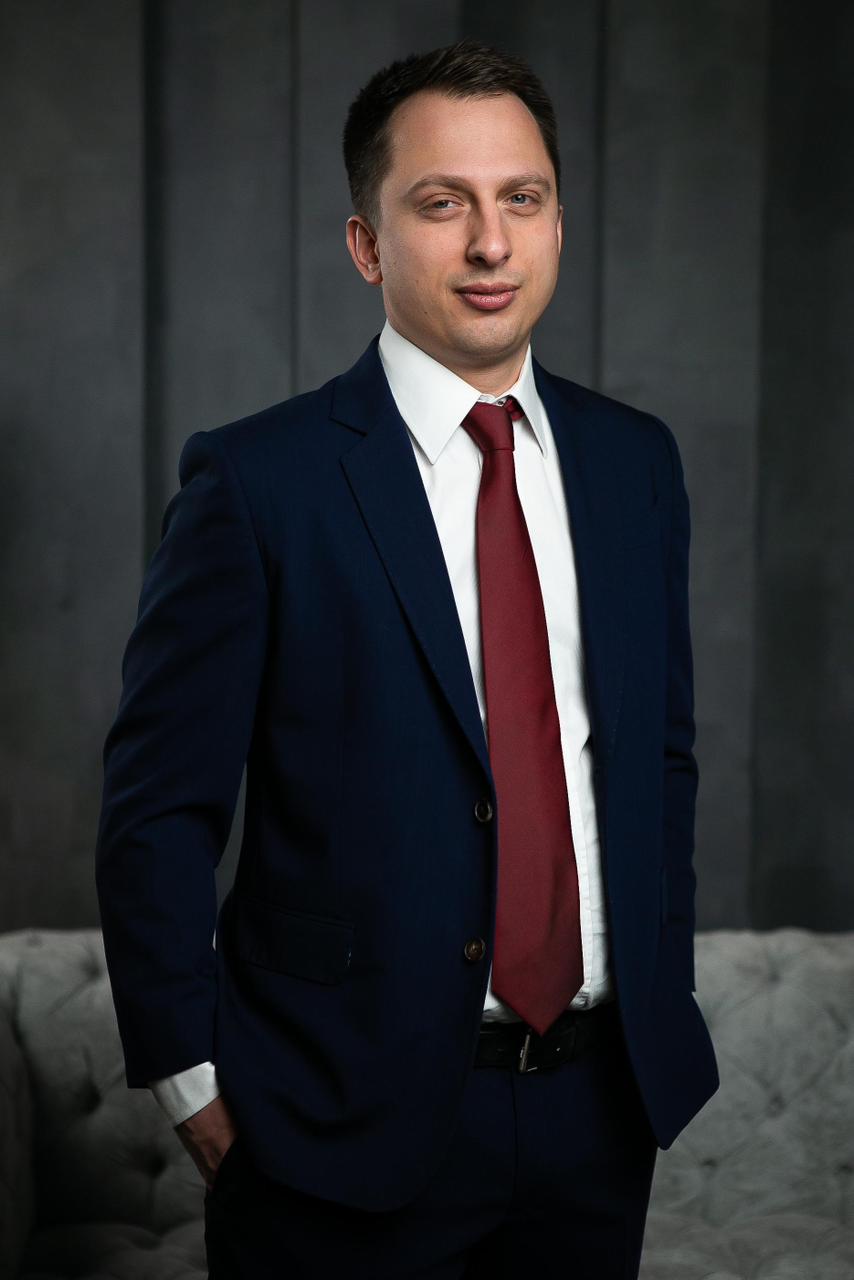
“There is a need to support the Ukrainian wine industry. In addition, it is important to present Ukraine’s voice in the context of creating opposition to the Russian Federation and putting pressure on the organization to further exclude the aggressor from all possible international organizations, institutions, etc.” – Oleksiy Pinchuk, Director of the Department of International Cooperation and European Integration, Ministry of Agrarian Policy and Food of Ukraine:
“We have always wanted to renew our membership in the OIE. As far as I know, our predecessors did not pay membership fees, and this was the reason for Ukraine’s exclusion from the organization. This issue has been frozen for a long time. Because the Ministry of Agrarian Policy, and then the Ministry of Economy, was not ready to continue paying these funds from the budget. Then the Ministry of Agrarian Policy was liquidated for several years.
During the war, we had many opportunities, including writing off this debt and rejoining the organization. We reached an agreement that we would not pay membership fees for several years due to the fact that we are at war.
Why is it important to join this organization? There is a need to support the Ukrainian wine industry. In addition, it is important to represent Ukraine’s voice in the context of creating opposition to the Russian Federation and putting pressure on the organization to further exclude the aggressor from all possible international organizations, institutions, etc.
The public union UKRSADVINPROM and its head, Volodymyr Pechko, played a very important role in this story. They initiated this issue and emphasized the importance of joining the IWW. In addition, we established internal communication with the organization’s management, which was a positive signal that we would be accepted.
The ministry provided political support, sent the necessary request, resolved the issue of regulations, prepared a resolution of the Cabinet of Ministers of Ukraine for accession, and provided political support, as there was also a question of paying contributions.
As a result, it became possible to officially apply to the organization with all the necessary documents to terminate the activities of the Russian Federation. We are currently working on this in parallel. “UKRSADVINPROM constantly requests that the invading country be expelled from the international organization and appeals to its colleagues from other countries to support Ukraine in this matter. Winemakers are an industry in the post-Soviet space where everyone communicates with each other, so it is very important for us that they support Ukraine.
For their part, representatives of the Ministry of Agrarian Policy voice their position on Russia’s participation in the organization at official meetings of the IOVO board and send letters.
In the future, we plan to provide evidence of Russian aggression in Ukraine, the issues and its consequences, and will appeal to members to support us.
Today, Russia pays its dues, we understand its geopolitical influence and there are countries that traditionally support it… but we will continue to work and defend the position that there is a need to exclude Russia from the organization.
Now it is very difficult to record and estimate the losses and damages caused by Russia. We do not even understand the losses in the entire industry. Most of our best vineyards are located in Crimea, they were annexed along with the peninsula. We do not understand the condition and fate of these vineyards.
The IGWC is the largest platform to talk about our problems and voice our financial needs. Our representatives will represent our interests. At the time of Ukraine’s recovery, entire programs for the restoration of industries will be formed, and it is very important to constantly talk about the wine industry, to conduct information work, and then our issues will be included in the programs of other countries. Especially these will be countries known for their winemaking such as France, Italy… expert and scientific support from Chile, Argentina… I am sure that there will be a result. If we want to support Ukrainian viticulture, there is no better platform than the main international organization.”
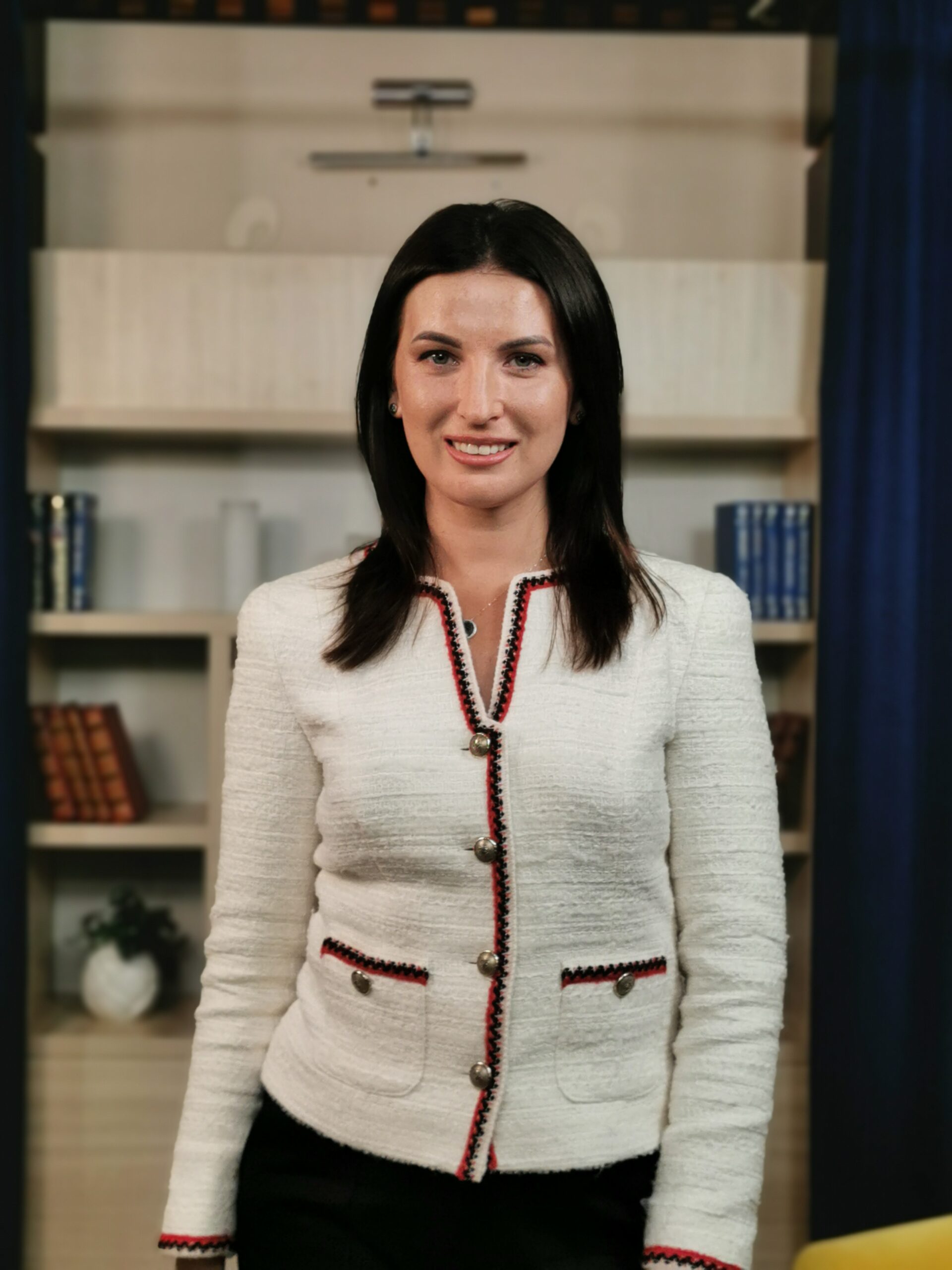
Natalia Burlachenko, an international and national wine specialist and member of the official delegation of Ukraine to the OIV, tells how this thorny path has been going:
“I have heard about the OIV for a long time, but not about Ukraine’s active participation in it without membership, but thanks to the international activity of Ricardo Nunez, with whom I work. He constantly participated in international OIV conferences, having wineries in many countries and business connections in even more countries.
Various governmental organizations and OIV officials asked for support in various issues and usually received it, and free of charge, from Mr. Ricardo. The businessman and philanthropist in Ukraine kept repeating that Ukraine needed to join the OIV, that almost all wine-producing countries were members of this important international organization that writes the rules of the wine-making civilized world. And so, at one of the events, Ricardo Nunez met Volodymyr Pechko, the head of UKRSADVINPROM. This meeting resulted in Ukraine’s return to the OIV. Volodymyr Pechko turned out to be an active young unbiased person who defends the interests of the industry and has the support of the Ministry of Agrarian Policy of Ukraine, which was enough for a relatively quick process.
Some people recall with longing the first year of 2001 and some decades ago, when everything was good for everyone, when everyone worked together, until 2001 came and the International Bureau of Grapes and Wine was reorganized into the OIV, and Ukraine was not reorganized because there was no one to do it.
So the question arises as to why active Ukrainian organizations that supposedly defend the interests of viticulture have not been able to bring Ukraine into the organization where we worked so fruitfully before, according to eyewitnesses, for more than 20 years?
We heard about a certain ban on Ukraine’s accession to international organizations in those days. But then a great war came to our land and all diplomats, diplomatic missions, and everyone involved received another clear instruction from the President: to join all possible international organizations so that Ukraine could be seen in the world, so that its voice could be heard. So the question of Ukraine’s accession to the OIV, which had long been in the air, found support from a group of enthusiasts. I repeat once again, if it were not for the war (unfortunately) and lobbying for Ukraine’s interests, not for a separate association, Ukraine would have been actively watching the wine industry develop past it for 14 years.”
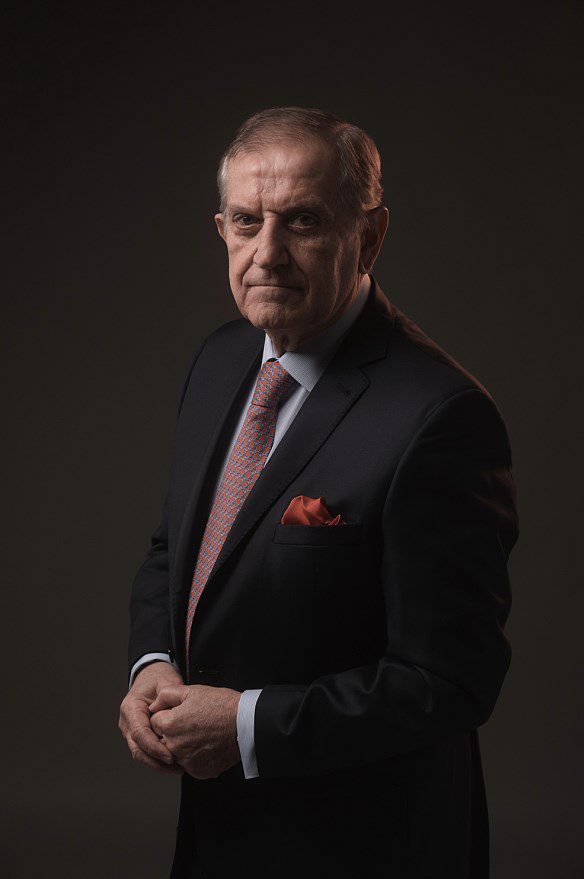
“Being a full member of the OIV is an act of national sovereignty. Ukraine is a sovereign nation that has once again taken its place in the world of wine,” says Dr. Ricardo Nunez, owner of Vinos de La Luz, businessman and philanthropist.
“Ukraine’s accession to the OIV was a very well-coordinated work and was carried out step by step. I am a foreigner, although I have been doing business in Ukraine since 1998, and in the wine sector I have been importing my Vinos de La Luz brand to Ukraine since 2014. Everyone who knows me in the wine business knows that my next project is to produce wine in Ukraine. At a competition for small producers held in Odesa three years ago, Mr. Pechko told me about UKRSADVINPROM, its members, the need to develop Ukraine’s presence in the international wine world, and he said he was convinced that re-entering the OIV was a necessary step. At that time, the OIV director general was Pau Roca, a Spaniard who had previously been the director general of the Spanish Wine Federation (FEV), of which I am a member, and I had known him in professional circles for many years. A few months passed and at another wine-related meeting in Kyiv, I met Mr. Pechko again and he asked me if I had done anything about the OIV issue. The question surprised me, because I did not realize that I had to do anything for this issue. I left that meeting thinking that in all the years that I had been in the world of wine in Ukraine, the only executive who had spoken to me about this issue was Mr. Pechko. The next day, I started to make contacts. I must say that I was impressed by the resolute attitude of the Ministry of Agrarian Policy and representatives of UKRSADVINPROM from the very beginning of our work together. However, when the Russian occupier started this tragic war, our activities on Ukraine’s accession to the OIV became a daily routine, as the goal was to complete everything by November 2022, so that Ukraine would be accepted as a full member of the OIV. And this was achieved. Moreover, we achieved this without Ukraine having to pay a single euro either for the past periods or in the future. It was really an extraordinary work of the OIV team and UKRSADVINPROM.
November 4, 2022 is an unforgettable day in the history of Ukrainian wine. And not only for wine, but also for the demonstration of the country’s sovereignty, just when the enemy denies its existence. Everyone fights with the weapons they have, and the weapons used to join the OIV worked perfectly. I was honored to be present at the official ceremony of announcing Ukraine as a member of the OIV to see the face of the Russian representative sitting a few meters away from the Ukrainian delegation when Pechko said, verbatim: “We bring greetings from all the wine-growing regions of Ukraine, from Odesa, from Crimea, from Transcarpathia, from Kherson, from Mykolaiv and from every vineyard planted on our Ukrainian land. We also bring greetings from the many men and women of the wine industry, winegrowers, oenologists, sommeliers and all those who cannot devote themselves to their work today because the Motherland demands that they defend it.” And I also witnessed the endless applause that followed this speech.
I think everybody knows that the OIV is an organization whose members are sovereign wineries, and that it consists of numerous scientific committees that receive and produce thousands of materials for the development of viticulture, and for the protection of trade between countries. The OIV is an organization where you have to be a member to exist on the map of the wine world. The United States left this organization because it could not be a leading country, but it could not prevent one of its federal states, namely Texas, from being part of the OIV as an observer, so as not to be deprived of access to the knowledge that this organization provides.
The 49 member countries and 18 observer states and associations have realized that all countries are equal in this body, and all have the opportunity to contribute knowledge and in turn access the scientific work produced by more than a thousand experts. As an organization, it is very democratic and respects the principle of rotation. Yesterday, the CEO was a Frenchman, today a Spaniard, and tomorrow a New Zealander. Similarly, its last presidents were an Argentine, a German, a Brazilian, and today an Italian. And its committees legislate equally for all of them. Also a representative from Ukraine, Mr. Pavlenko was president of the OIV from 1988 to 1990.
At the last Congress, 35 resolutions were approved, covering all industries, from seeds to packaging. And they are for all countries. The OIV trains some of the most important specialists in wine production, offers research grants and in recent years has developed courses in ampelography, the knowledge of the leaves of the vine and its plant, which many have forgotten. For foreign investors, it is not the same if Ukraine is a member of the OIV or not. And finally, at this point, being a full member of the OIV is an act of national sovereignty. Ukraine is a sovereign nation that has once again taken its place in the world of wine. I am confident that producers will learn a lot from the OIV experience, and Ukraine is opening the doors to the world and will be able to make itself heard internationally.
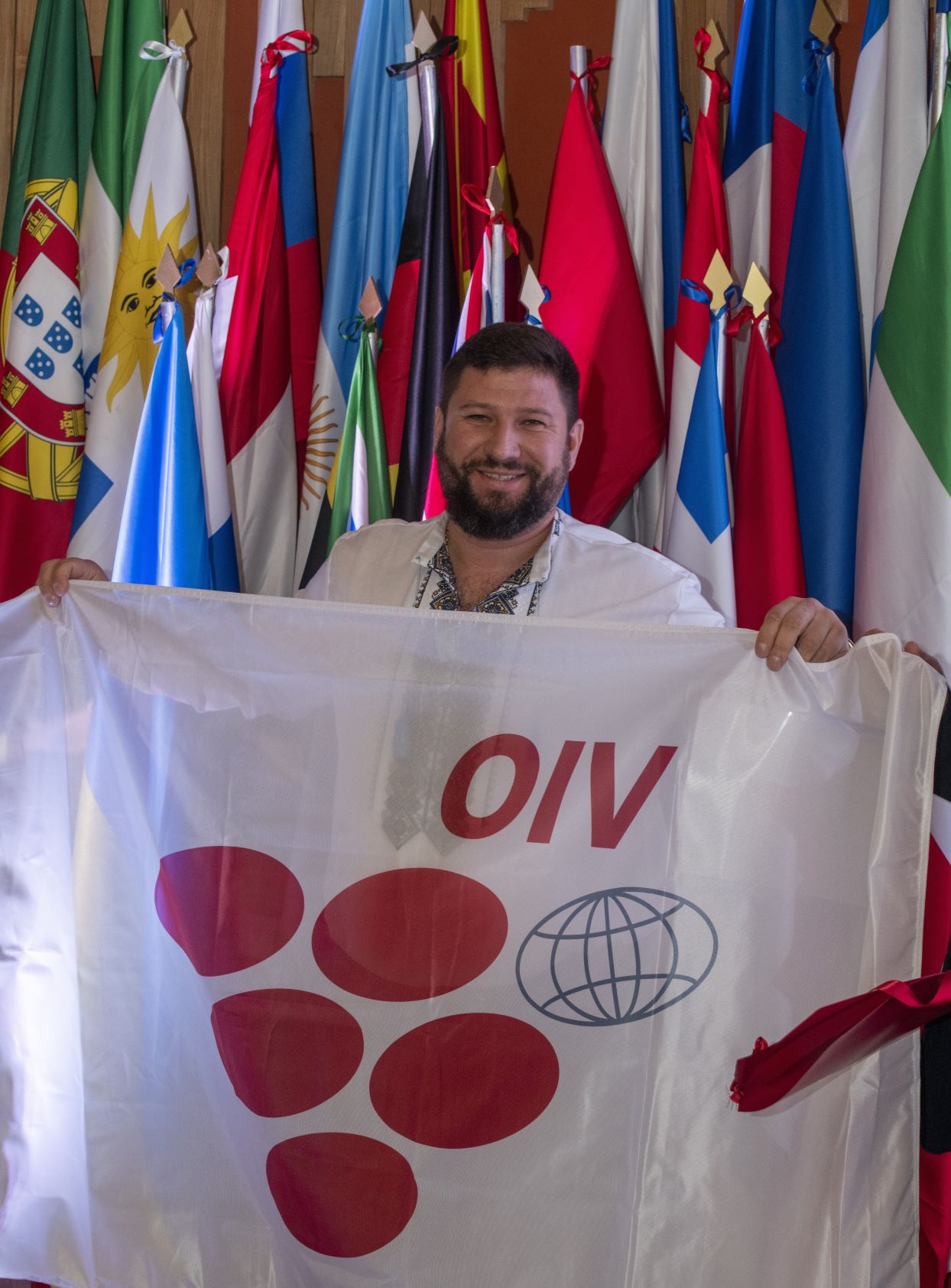
“We have given Ukraine a voice, returned the right to influence international policy in winemaking, participate in the creation of regulations and the establishment of new trends in the industry,” Volodymyr Pechko, Head of the UKRSADVINPROM Public Union, Head of the official delegation of Ukraine to the OIV:
“Why did you choose UKRSADVINPROM among 40 corporations and public organizations?
The union unites 85% of the industry it is part of: Tairov Institute of Viticulture and Wine, Odesa Academy of Food Technologies, about ten agricultural universities from all over Ukraine, regional associations of winemakers and growers in Vinnytsia, Odesa, Black Sea, Transcarpathia, Lviv, Dnipro, and the Association of Craft Winemakers of Ukraine – all of them are members of UKRSADVINPROM. Today, it is the largest union that brings together more than 250 enterprises and all productive business entities working for the benefit of the industry. I would also like to emphasize that UKRSADVINPROM does not work with enemies of the industry and those who support the military aggression of the Russian Federation or have sided with the occupier.
At the initial stage, the success story of UKRSADVINPROM was precisely the representation of the industry’s enterprises in courts by our legal service. We sued for accounts payable that arose in 2012 and tried to write them off from the Ministry of Agrarian Policy. For three years, the companies had not been repaid this debt.
UKRSADVINPROM renewed the deadlines, sued the Ministry of Agrarian Policy for about UAH 100 million and actually launched the program, which was in place in accordance with the Cabinet of Ministers of Ukraine’s Resolution No. 587.
It was we who succeeded in canceling Ukraine’s debt to the OIV, together with the Ministry of Agrarian Policy and our friends, namely Natalia Burlachenko and Ricardo Fernandez Nunez.
Regarding the fact that for all 14 years Ukraine did not have the right to vote in this organization: of course, there were isolated cases of representatives from various Ukrainian scientific institutions or private business coming to the OIV. However, we have given Ukraine the right to vote, regained the right to influence international policy in winemaking, participate in the creation of regulations and the establishment of new trends in the industry.
We could not renew our membership not because of any bans, but because we did not have a quality lobbyist in the field of winemaking and viticulture. Now this lobbyist has appeared, in the person of the public union we represent, UKRSADVINPROM. I can give you the following as an example: The Committee on Geographical Indications allowed Ukraine to use the name “cognac” until 2026. If we take into account such countries as Armenia and Georgia… they were granted the right to use the name “cognac” until 2043 and were compensated to mitigate the economic blow to the industry and rebranding. Unfortunately, no one has provided any compensation to Ukraine, and the transition period granted to Ukraine is much shorter than the period granted to other post-Soviet countries that use the name “cognac”.
By the way, in 2022, thanks to the International Trade Center project, we went on a working visit to Armenia and Georgia to get acquainted with the work of viticulture and winemaking enterprises in these countries. It was the industry that insisted on visiting these countries. We are grateful to the ITC project, which provided the technical opportunity for this working trip. The companies took the initiative to visit these countries because they have similar climatic zones and a history of wine industry formation as Ukraine. We wanted to learn from the experience of these countries. We were very surprised by the level of development of the grape and wine industry. This once again demonstrates the high level of lobbyists in these countries and systematic work in international organizations.
Before renewing Ukraine’s membership in the OIV, we decided on the policy of this organization and if it did not support our country and was not against the aggression of the Russian Federation, we would not have been able to renew Ukraine’s membership. We have repeatedly consulted and communicated with experts from the Ministry of Agrarian Policy and the Ministry of Foreign Affairs, studied statements by OIV representatives, and it was decided to renew the membership and international relations of the Ukrainian wine and grape industry.
In order to exclude Russia from the OIV, as a lawyer, I can say that it was necessary to renew membership in order to have the right to vote, the right to submit any initiatives, and you can just write letters anywhere and everywhere, and this does not mean that anyone should take into account the information in these letters. Because the international organization OIV can only take into account statements or appeals, initiatives of a country that is a member of OIV.
I am confident that the Ministry of Agrarian Policy did not regret delegating our union to represent Ukraine in the International Organization of Grapes and Wine.
UKRSADVINPROM is not only Volodymyr Pechko, but also qualified specialists in the field of horticulture, viticulture, winemaking, and consultants. In addition, the union has a powerful legal service that is knowledgeable about the law. We also have the opportunity to involve our members, represented by wineries, institutes and academies.
Personally, I defended my dissertation and received the title of Candidate of Economic Sciences back in 2017 and have been teaching at the Department of Agricultural Processing at the Institute of Postgraduate Education of the National University of Food Technologies for about 3 years. I combine my practical experience at the enterprise and continuous improvement of skills and knowledge with theory and work at the Institute. Since the age of 16, I have been working at a horticultural enterprise that grows perennial plants and produces wine at its winery. I went through the whole cycle, from the harvester of agricultural products.
My motto in life is: “Do what you have to do and let things happen!”
I believe that Ukraine’s participation in the organization will open up new opportunities for the development of the industry and we, together with a team of like-minded people, will make efforts to restore Ukraine’s title as a wine-producing country!
Muliukina, PINCHUK, UKRSADVINPROM, Vine, WINE, Ковалева, Костенко, ПЕЧКО
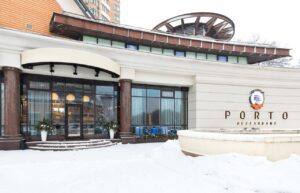
The capital’s restaurant business felt the consequences of enemy shelling and power outages the most. Many interesting and unique establishments were forced to suspend or even stop their activities. However, the opening of new locations, in particular the expansion of the restaurant chain of Mediterranean cuisine “Porto Maltese“, gives hope for the future.
Restaurant “Porto Maltese” is located in the city center at the address: Lesia Ukrainka Boulevard, 30 B.
The main idea of the establishment is to create the atmosphere of a Mediterranean town in the business center of the capital, which helps to distract the visitor from the stormy life of the city and set up for a leisurely visit, immersion in the atmosphere of a small European port, with the opportunity to dive into the depths of the sea, warm up in the warm company of close friends, share a delicious dinner, enjoy the blue waves and emerge refreshed in anticipation of the next visit to the port.
The complex shape of the restaurant immediately suggests the motive of the future design – two halls, like the bays of the port city, flow into each other, connected by a fish market with fresh catch right under the sails of fishermen, and completed with a summer terrace – an exit from the port to the city. And there is nothing better in the traditions of the Mediterranean than the combination of fresh fish with the family winery.
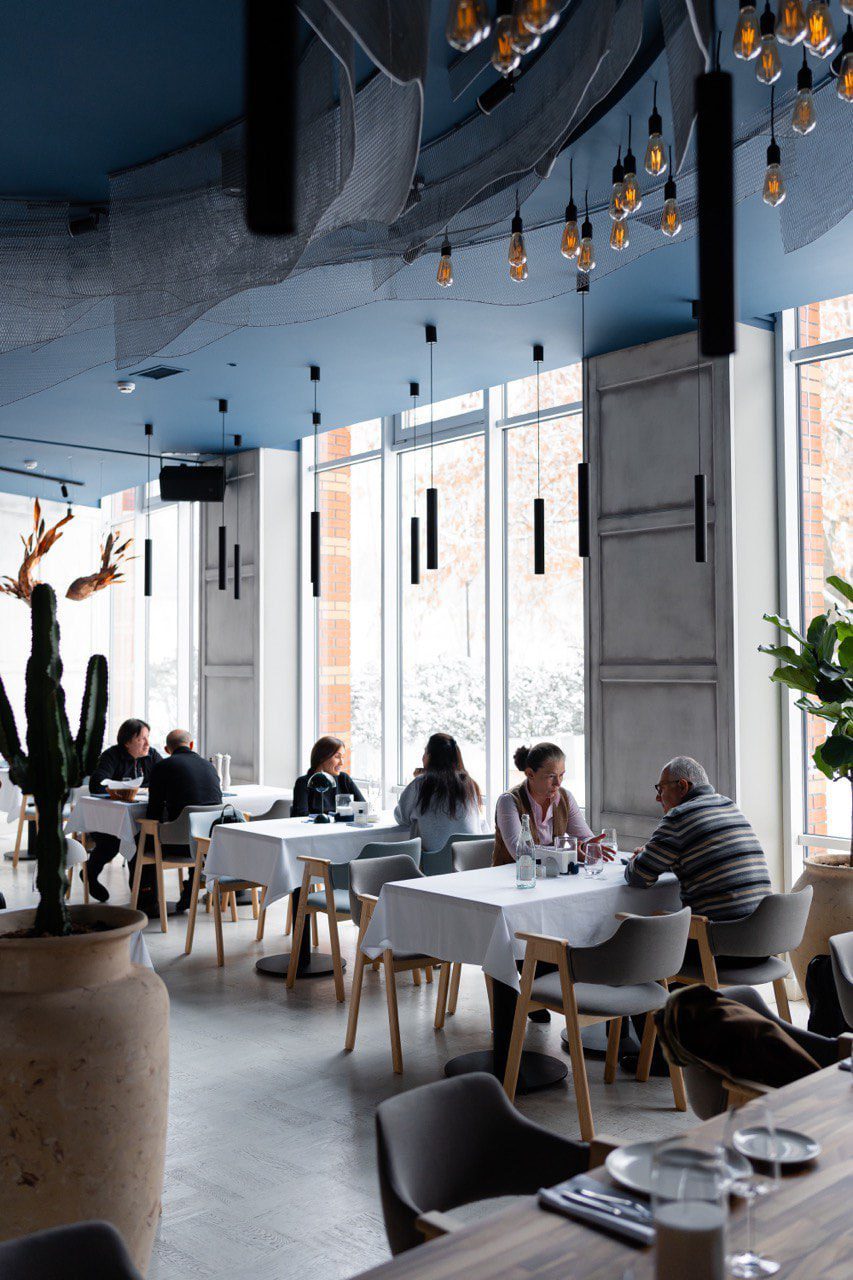
The atmosphere of the port is also created by the snow-white sails of the ships, the wall with the image of the terrible ruler of the seas, the whale from the “History of Animals” by Konrad von Gesner, which was tamed to protect the exquisite treasures of our restaurant – a collection of bottles of selected wine, which according to legend is created on the neighboring hills. Jellyfish lamps hover slowly over the bar against the backdrop of a rusty ship, waiting for guests.
The interior is soaked in deep sea blue with bright white accents of sails and tablecloths.
On the ceiling, uniting both halls, the sea waves fluctuate in smooth curves, play with rays of warm, like sunlight from a set of bulbs, twist into a whirlpool, drawing the visitor to explore the entire space, explore both halls, and the columns-cables – carefully stacked gear, without which the life of the port is impossible, attract attention with the skill of their performance.
The restaurant’s menu offers a variety of shellfish and fish: sea tongue, mullet, sunfish, stingray wings, turbot and others. Guests can choose the cooking method: sauté, soup, siciliano, in parchment, grilled, homemade and in salt, and then watch the cooking process in the open kitchen.
As well as fresh salad, meat dishes, freshly baked bread, homemade desserts and a wide selection of wines. A unique culinary “route” awaits you – from seafood delicacies, through delicious Serbian cuisine to fresh salads prepared with special care.
The guests of the restaurant have already decided on the favorite of the menu – seafood sauté.
Sommelier will select a wine pair for each position to emphasize the refined taste of the dish. The wine list contains the best samples of wines from around the world.
Mediterranean cuisine, Porto, Porto Maltese Restaurant, RESTAURANT, SEAFOOD, WINE
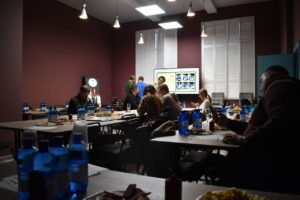
During the last two months a series of scientific and practical seminars-tastings of vintage drinks of 20-80 years old were held on the basis of Analytical center “Club of experts” with the assistance of a public association “Ukrsadvindindprom” and Charity fund “Reconstruction and development of Ukraine”. Representatives of Ukrainian wine industry, retail, mass media and other experts took part in these seminars.
All in all, participants of the workshops got acquainted with more than 40 kinds of vintage alcohol, produced in Ukraine and European countries in the second half of the last century. The total age of the drinks exceeds 3000 years.

In particular, such famous Ukrainian collection brands, as “Massandra sherry” from the 1980s and “Black Doctor” from 2007 were presented at the conferences. Among the European alcoholic brands the participants distinguished a rare sherry brandy “Hispano” 1870 (!), another Spanish drink “Ponche Rives” 1978, vermouth “Marsala” 1950-ies and other drinks. All in all 15 different vintage drinks were evaluated by the participants.
According to the words of the expert-collector of vintage alcoholic drinks Igor Magalas, the cost of the majority of samples which were presented at the seminars does not exceed the prices of similar drinks on supermarket shelves. At the same time, the taste and eco-friendliness of vintage drinks are an order of magnitude superior to many modern brands.
“The thing is that the automation of alcohol production lines, which became widespread at the end of the last century, led to a natural decline in quality for the sake of quantity. More than once I faced situations when at closed tastings sommelier experts preferred lower class vintage alcohol produced in the 1960s-1970s to modern expensive brands bottled in the 2000s-2010s,” Magalyas noted.

According to the expert, the reason for this is not the number of years the drink has been in the bottle, but the technological process of production at the initial stages, which largely affects the bouquet and taste of any alcohol.
Maxim Urakin, the organizer of the series of seminars, in turn, expressed hope for the further development of the vintage drinks market in Ukraine and for promotion of the culture of their consumption in the new year 2023.
“We will continue the promotion of vintage alcohol in the Ukrainian market. In Europe this product has a wide consumer audience for a long time, while in our country it is still considered “elite” and unavailable, although in my opinion it is a delusion. Therefore, the main purpose of our seminars, to make vintage alcohol more accessible to Ukrainians” – he stressed.
Vintage (molesim) in wine-making means the year of ripening of a certain grape variety which is used to produce wine, brandy, cognac or other vintage-based drinks. This indicator is important in determining the characteristics of the drink because weather and climatic conditions change every season, which may affect both positive and negative effects on the organoleptic characteristics of beverages of the same brand.
The Club of Experts is Kiev analytical center, which is engaged in researches in the field of economics, sociology and other scientific disciplines. In particular, with the assistance of the Club of experts during the last year there were held several events for the promotion of the national winemaking products.
Public Union “Ukrsadvindindprom” was a partner of the seminar and tasting. “Ukrsadvindwinprom” unites about 200 producers of fruits, berries, nuts and grapes, enterprises that process fruits and berries and produce wine, as well as scientific institutions for implementation of new scientific approaches in production.
The “Reconstruction and Development of Ukraine” Charitable Foundation has been providing extensive volunteer support to the army and civilians since the war began. In particular, with the support of KNUSA Rector Petr Kulikov, the foundation donated a modern mobile hospital for the needs of the military.
CLUB_EXPERTS, CONFERENCE, SCIENCE, UKRSADVINPROM, URAKIN, VINTAGE_WINE, WINE, WINEMAKING
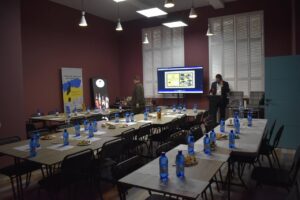
On Saturday, November 7, on the basis of the analytical center “Experts Club” with the assistance of the public association “Ukrsadvinprom” and the charitable foundation “Reconstruction and Development of Ukraine”, the second scientific and practical seminar-tasting of vintage drinks aged from 20 to 80 years was held. The seminar was attended by representatives of the Ukrainian wine industry, retail, media, and other experts.
At the seminar, Igor Magalyas, an expert collector of vintage alcoholic beverages, introduced the participants to the most popular varieties of Ukrainian and European vintage wines, brandy and other drinks aged up to 80 years. Ukrainian products were presented at the conference by such brands as Sherry Massandra 1983 and Black Doctor 2007. Of the foreign alcoholic brands, Curasao liqueur from the 1950s, the rare sherry brandy Hispano from 1870 and another Spanish drink Ponche Rives from 1978 received the highest ratings from the participants. In total, the participants of the seminar evaluated 15 different vintage drinks.

According to Igor Magalyas, all products presented at the seminar are in the budget price segment and their cost does not exceed the cost of modern branded alcohol on the shelves of Ukrainian supermarkets.
“Most of the drinks presented here were purchased by collectors in Europe at auctions or at sales of private collections. At the same time, they have a number of taste and quality advantages over more modern drinks that can be freely bought at retail outlets, even if it is the same brand,” he said.
According to the expert, the fact is that in the 80-90s of the last century, the automation of alcohol production, introduced in order to increase the volume of products sold, had a negative impact on the quality of wine and distilled drinks.
“In particular, in my opinion, the ability of the same brandies to improve their palatability as they age after bottling was practically lost. In other words, if we open a bottle of good brandy from 1970 today, then such a drink will have a much richer flavor bouquet than if we opened a bottle of the same brandy 30 years later, but, say, 2020 bottling,” Igor explained Magalyas.
The organizer of the seminar Maxim Urakin, in turn, emphasized the importance of developing the vintage drinks market in Ukraine and popularizing the culture of drinking them.
“Each bottle of such wine or brandy has its own history; it is a rather rare, almost unique product, but at the same time it is quite affordable and popular in Europe. If we add up the age of drinks at today’s tasting, we get an impressive figure of more than 700 years of the total age of drinks, which also makes our event unique,” he stressed.

Vintage (milezim) – in winemaking means the year of ripening of the harvest of a certain grape variety from which wine, brandy, cognac or other drink based on it is produced. This indicator is important in determining the characteristics of the drink, since weather and climate conditions change every season, which can both positively and negatively affect the organoleptic characteristics of drinks of the same brand.
“Experts Club” is an analytical center engaged in research in the field of economics, sociology and other scientific disciplines. In particular, with the assistance of the Club of Experts, several events were held last year to promote domestic winemaking products.
Public Union “Ukrsadvinprom” acted as a partner of the seminar and tasting. “Ukrsadvinprom” unites about 200 producers of fruits, berries, nuts and grapes, enterprises engaged in the processing of fruits and berries, wine production, as well as scientific institutions for the introduction of new scientific approaches to production.
Charitable Foundation “Reconstruction and Development of Ukraine” carries out extensive volunteer activities. In particular, with the support of the rector of KNUCA (KNUBA) Petr Kulikov, the fund will soon hand over a modern mobile hospital. The head of the fund is Artem Goncharenko.
Organizers will send part of the proceeds from the event to purchase a mobile hospital.
CHARITY, CONFERENCE, EXPERT_CLUB, SCIENCE, UKRSADVINPROM, VINTAGE_WINE, WINE, WINEMAKING, АРТЕМ ГОНЧАРЕНКО